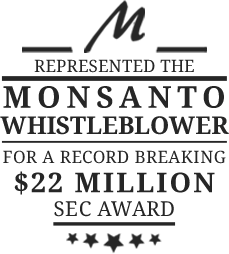








Is Whistleblowing a Social Responsibility?
Corporations and other publicly traded companies often include social responsibilities, or a way of giving back to society after earning a profit. Oftentimes, investors will choose which businesses they invest with based on what their social responsibilities are. In this way, whistleblowing does become a social responsibility.
Whistleblowers are critical to ensuring that corporations follow federal securities laws and uphold the standards they’ve portrayed to their investors. When a corporate insider reveals fraudulent activity, it can have a direct impact on social responsible investing and help investors or companies ensure that their business ventures remain dedicated to the civic duties they’ve committed to.
Social Responsibility in Publicly Traded Companies
An excellent way of understanding social responsibility in publicly traded corporations is to examine a large company such as General Electric. GE’s corporate social responsibility (CSR) page includes initiatives they are capitalizing on and who these social responsibilities will benefit, including stakeholders, investors, employees, customers, and the environment.
Some of these initiatives include the GE Ecomagination strategy, which is meant to reduce the company’s environmental impact and help it to become more sustainable, and the GE Foundation, which works with HR management programs that provide education regarding human rights, health, and employment principles in a number of different sustainability industries.
For investors who choose their investment opportunities with corporate social responsibilities in mind, businesses that strongly outline their initiatives, while also upholding these beliefs and strategies, are more likely to be successful.
What Happens When Corporations Fail to Uphold Their Obligations?
The United States Securities and Exchange Commission (SEC) has developed a whistleblower program through which would-be whistleblowers can report fraudulent activity to the SEC and potentially win an award if their tip meets the eligibility requirements.
When whistleblowers report that a corporation hasn’t been upholding their CSR obligations, typically by deceiving investors who chose to invest based on the company’s social responsibilities, the investor’s funds can be protected and the corporation will be expected to maintain the validity of their social responsibilities.
If a corporation is found to have failed to maintain their social responsibility commitments, the risks are high. The company’s stock value could fall, they could lose potential new investors, investor confidence could plummet, and the corporation could lose all consumer trust.
How Whistleblowers Impact Social Responsibility
Whistleblowers coming forward with information regarding these violations are one of the most important tools to discovering this form of fraudulent activity.
Corporate insiders should be expected to follow the obligations of their company’s social responsibilities. This includes holding their company accountable for their CSRs, which is why whistleblowing itself is considered to be a social responsibility.
Failing to follow a corporation’s social obligations can impact investors and the public, result in hefty penalties for those found responsible for the violations, and yield substantial whistleblower awards through the SEC whistleblower program.
Many would-be whistleblowers refrain from reporting tips even though they are aware of the violations due to the very real fear of retaliation. Fortunately, there are many whistleblower protections available that can allow you to report your tips with confidence.
Speak with an SEC Whistleblower Lawyer
Whistleblowers and exposing social responsibility commitments that aren’t being upheld are of significant importance. Potential whistleblowers should consider this information a social responsibility in and of itself.
If you are interested in reporting your tips to the SEC, get in touch with a skilled SEC whistleblower lawyer at Meissner Associates today. Doing so could result in a substantial whistleblower award. You can schedule your confidential tip evaluation by filling out the secure contact form below or by giving our office a call at 1-866-764-3100.
